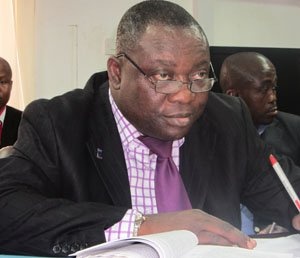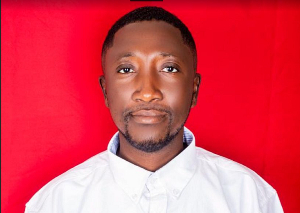Politics of Monday, 27 February 2017
Source: peacefmonline.com
Ghana is not a failed state - Pee Yalley to Nana Addo
Ghana's former High Commissioner to India, Lawyer Sam Pee Yalley has bemoaned the ‘negative picture’ painted by President Akufo Addo during his first presentation of State of the Nation Address (SONA) in Parliament.
President Akufo-Addo on Tuesday, February 21, 2017, in line with Article 67 of the 1992 Constitution, appeared before Parliament to deliver his first State of the Nation Address.
The address gave highlights of the present state of various sectors of the country’s economy, as inherited from the erstwhile John Mahama-led government.
He also announced his plans to remedy the challenges left behind by the previous administration.
Commenting on a panel discussion on Radio Gold’s Alhaji and Alhaji, Sam Pee Yalley who described the address as the ‘shortest’ SONA in the country’s history indicated that there was no way the previous administration achieved zero success while in office.
The immediate past administration, he said, chalked various achievements; adding that President Akufo Addo should have mentioned it instead of painting a gloomy picture of the economy.
“…the president gave an impression that the country will collapse. If this is the situation how did the president order that we should pay outright the outstanding money of the military? He forgot all the good things that the former President did. The world is not made up of mountains alone. If you talk about the mountains, you talk about the valleys also. Why did the President choose to go to parliament then lament and forget about the fact that we have achieved something? Why are we painting this country as a failed state whereas other countries are looking up to us as their saviours; I don’t understand”
Speech writers
Sam Pee Yalley has also urged the President to educate his speech writers on the use of ‘the Ghanaian People’.
According to him, “it gives the impression that we are foreigners” or we are not valued as Ghanaians.
“Those who are handling the President and his speeches; we are not the Ghanaian people; we are Ghanaians. It gives the impression that either foreigners are writing these speeches or they just don’t value us. On two occasions, they refer to us; the Ghanaian people. Please, we are not the Ghanaian people; we are proud Ghanaians. These little things affect the image of the country. So, Mr President, I want you to advise your speech writers that we are not the Ghanaian people. We are Ghanaians…”










